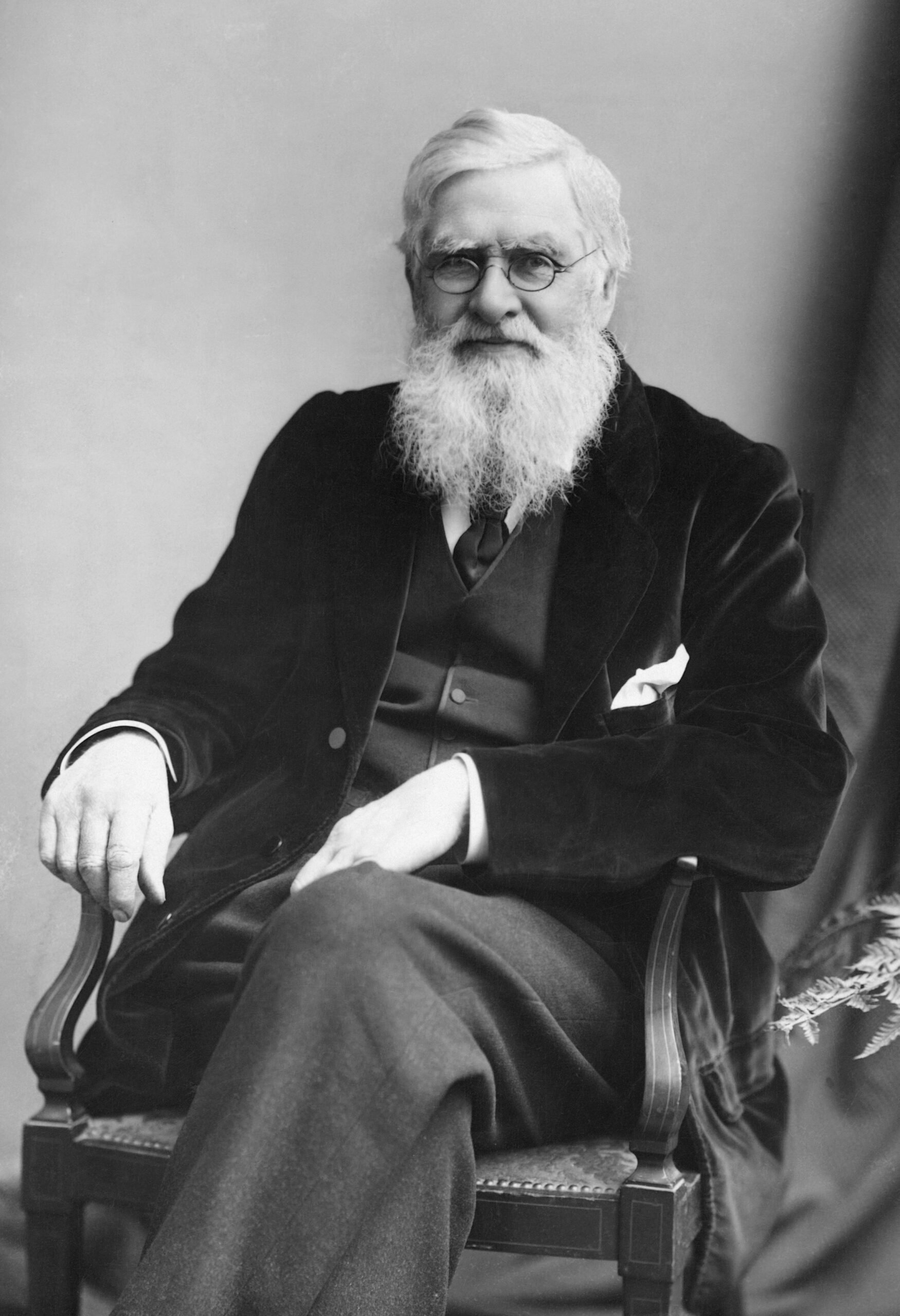Alfred Russel Wallace: Co-Discoverer of Natural Selection and Pioneer of Biogeography
Alfred Russel Wallace (1823-1913) was a British naturalist, explorer, and biologist who made substantial contributions to the theory of evolution and the field of biogeography. Born on January 8, 1823, in Usk, Monmouthshire (now in Wales), Wallace grew up in a family of modest means. His early education was limited, and he worked various jobs, including as a surveyor and a teacher, to support himself. However, his passion for the natural world was a driving force in his life.
Wallace’s interest in natural history was sparked during his early years, particularly influenced by his work as a surveyor, which exposed him to diverse landscapes and wildlife. This passion led him to embark on extensive explorations. In 1848, he set sail for the Amazon with fellow naturalist Henry Walter Bates. Wallace spent four years collecting specimens and studying the region’s flora and fauna. Unfortunately, his return journey ended in disaster when his ship caught fire, destroying most of his collections and notes. Despite this setback, Wallace’s resilience saw him continue his scientific pursuits.
In 1854, Wallace embarked on a more successful expedition to the Malay Archipelago (modern-day Indonesia and Malaysia). Over eight years, he meticulously collected and documented thousands of species, contributing significantly to the understanding of the region’s biodiversity. Wallace’s observations of species distribution and variation between islands led him to independently conceive the theory of natural selection.
In 1858, while suffering from a bout of malaria, Wallace wrote an essay outlining his theory of natural selection. He sent it to Charles Darwin, unaware that Darwin had been developing a similar theory for years. This prompted Darwin to present Wallace’s essay alongside his own unpublished writings at the Linnean Society of London. Although Darwin is more widely recognized today, Wallace’s contribution was critical in the formulation and acceptance of evolutionary theory.
Wallace’s independent development of natural selection was a pivotal moment in the history of science. His insights into the adaptive mechanisms that drive species variation provided a robust framework for understanding evolution. Wallace also introduced the concept of “Wallace’s Line,” a boundary that separates the distinct faunal regions of Asia and Australasia, highlighting the role of geographic barriers in species distribution.
Beyond his contributions to evolutionary theory, Wallace was a pioneer in biogeography, the study of the distribution of species and ecosystems in geographic space and through geological time. His extensive fieldwork and keen observations laid the groundwork for modern biogeography and ecology. He documented the influence of environmental factors on species distribution, paving the way for future research in these fields.
Wallace was also an outspoken advocate for social and environmental issues. He championed land reform, social justice, and the ethical treatment of indigenous peoples. His book, The Malay Archipelago (1869), remains a classic of natural history literature, combining scientific observations with vivid descriptions of his travels and the cultures he encountered.
Curiously, Wallace diverged from many of his contemporaries in his views on spiritualism and human evolution, believing that natural selection alone could not fully explain human consciousness and intellect. Despite these controversial views, his scientific contributions earned him numerous accolades and respect from his peers.
Alfred Russel Wallace passed away on November 7, 1913, in Broadstone, Dorset, England. His legacy as a co-discoverer of natural selection and a founder of biogeography endures, reflecting his profound impact on our understanding of the natural world. Wallace’s life and work continue to inspire scientists and naturalists, underscoring the importance of exploration, observation, and intellectual courage.
#AlfredRusselWallace #Evolution #NaturalSelection #Biogeography #MalayArchipelago #Biodiversity #ScientificDiscovery #WallacesLine #NaturalHistory #SciencePioneer
